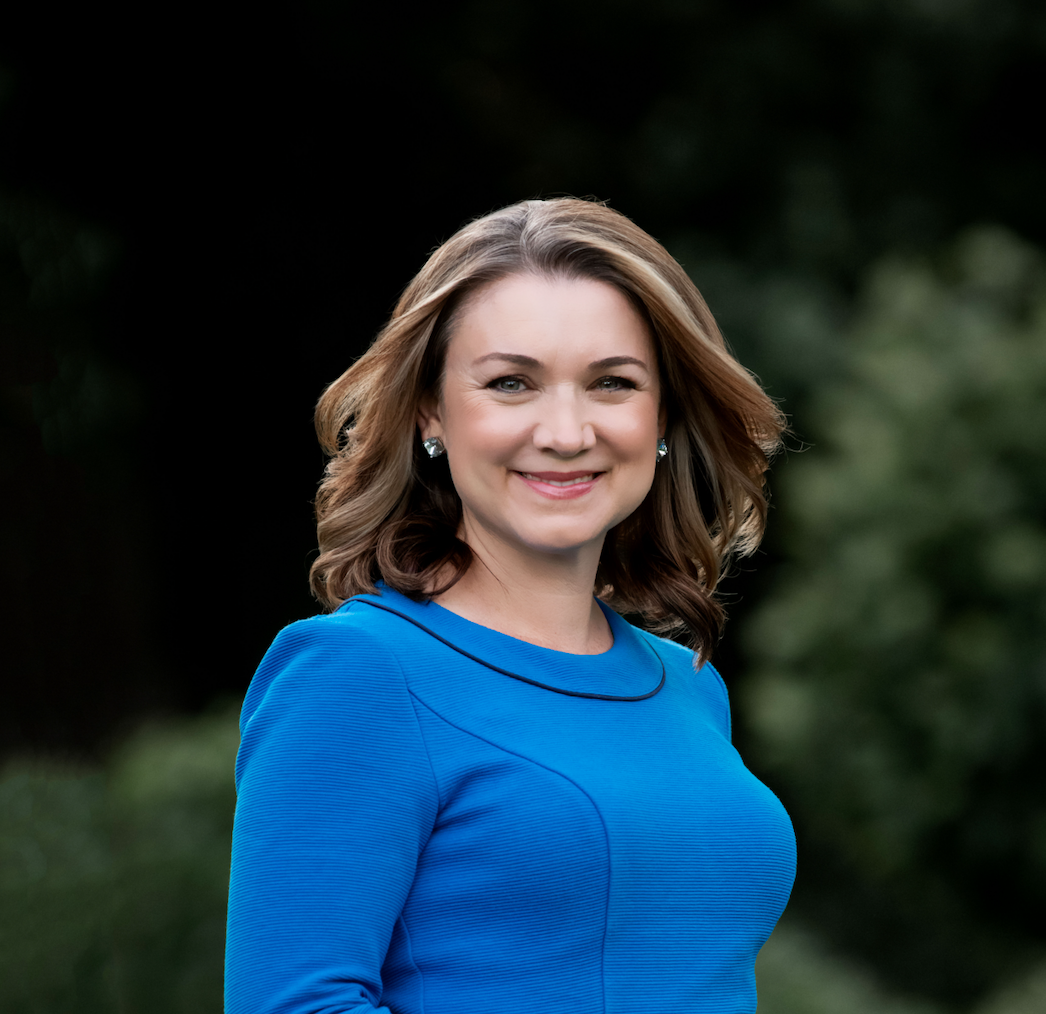As a kid, Tamara Keith paced her morning routine to the radio.
She started her day listening to NPR, awestruck by radio icons like Cokie Roberts. She knew she had to be brushing her teeth by the time a certain segment came on — otherwise she would be late to school.
To this day, she still paces her life to public radio, but now as the co-host of The NPR Politics Podcast, one of the top political news podcasts in America.
Keith, who calls herself a “radio partisan,” said her early interest in radio led her to work at local public radio stations, where she could combine her passion with her talent of telling impactful stories.
She began at NPR in 2009 as a business reporter, then transitioned to White House correspondent in 2014. From Hillary Clinton’s attempt at presidency to the COVID-19 response under both the Biden and Trump administrations, Keith has seen it all.
“It’s not every day that you end up accidentally going on a secret trip and having to cancel your family vacation and all of those things,” Keith said. “But it happens. If you’re a White House correspondent, you know what you’re signing up for.”
Hundreds of miles from the White House, Keith is the University of Wisconsin La Follette School of Public Affairs’ spring journalist in residence. She will present the esteemed Offner Lecture March 29 about Americans’ declining trust in traditional media and its significance in a democratic society. Following the talk, Keith will answer questions about her experience as a White House correspondent.
In addition to her position at NPR, Keith is the president of the White House Correspondents’ Association. In this role, she facilitates logistics between the press and the White House. Recently, Keith helped pass new bylaws for the WHCA — a move she believes will be part of her legacy as president.
Outside of the newsroom, fitness-enthusiast Keith plays on Bad News Babes, a softball team composed of the Capitol Hill News Corps that plays against female U.S. congressional representatives every summer to raise money for breast cancer awareness.
When it comes to striking a work-life balance, the mother of two kids has a secret — “It’s never perfect.”
There are weeks she is able to get adequate sleep, work out every day and meal prep. But there are also weeks, like during former President Trump’s 2018 surprise trip to Iraq, where she is called on secret, last-minute missions.
More recently, as WHCA president, Keith was called in before President Biden’s surprise trip to Ukraine to help with planning and advocate for the needs of the press. While she did not go on the trip, she was involved heavily in breaking the news of the visit.
Even from her home, Keith felt the thrill of her job. She anxiously awaited pictures of Biden that would break the embargo — an agreement that nothing would be published until there was a visual sighting of Biden in Kyiv. Once that happened, she was in charge of setting the wheels of breaking news into motion by alerting the White House and other press involved.
Looking forward: How UW will honor Chancellor Rebecca Blank’s legacy
Keith, who has covered three presidential administrations, said this delicate relationship between the press and the White House requires trust.
“The functional role of the press to a presidency is public accountability, and nobody likes public accountability — it’s unpleasant,” Keith said. “But the vast majority of American presidents have strongly believed in the value of a free and fair and independent press.”
In her approach to journalism, Keith describes herself as “a little old school” in the way she thinks about objectivity. Some young journalists, she said, opt to use their role for advocacy. But she thinks the press should be utilized as a means to shine light on certain issues.
“I think it is important for stories to be fair,” Keith said. “And I actually think it’s incredibly useful to seek out contrary views because somebody might tell you something you weren’t expecting to hear.”
Big questions about journalism ethics don’t frighten Keith. In fact, she majored in philosophy — a discipline she thinks has greatly complemented her journalism.
“All you do in philosophy is take really smart people’s well-thought-out arguments and tear them apart, which is really helpful when you then go cover Congress or politics in general,” Keith said. “People make arguments that aren’t as well-thought-out as the great philosophers, and it’s your job to ask the right question.”
Keith’s advice to young journalists would be to keep themselves open to possibilities. Through different radio stations and across multiple reporting beats, patience was key in her ascension to White House correspondent.
Keith believes she is better at her job because she did other things first.
“If you really want to do journalism, you’ve just gotta find a way to keep doing it,” Keith said. “Because especially in this industry, inevitably something’s going to go wrong or not work out the way you wanted it to. And the people who allow themselves to be told ‘no’ are the people who aren’t still in journalism.”
A year of courage: Local, global allies continue support for Ukraine
Keith said she is looking forward to her trip to Madison not only to present her lecture, meet with students and faculty and visit classes, but also because of the power Wisconsin holds in the upcoming 2024 presidential election.
“Wisconsin is a totally fascinating state politically that is going to be very interesting for 2024,” Keith said. “It’s a state that matters.”
The 2023 Offner Lecture will be held at the Overture Center on March 29 from 7 p.m. to 8 p.m. It is free, open to the public and will be livestreamed, with a recording available after the event on La Follette School’s YouTube page. More information about the lecture can be found here.












